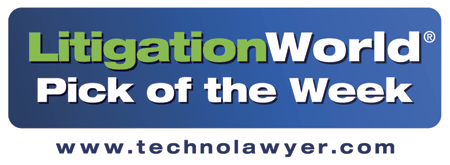eDiscovery Case Law: Award for Database Costs Reversed Due to Cost Sharing Agreement

An award of costs of $938,957.72, including the winning party’s agreed half share of the cost of a database or $234,702.43, was reversed in Synopsys, Inc. v. Ricoh Co. (In re Ricoh Co. Patent Litigation), No. 2011-1199 (Fed. Cir. Nov. 23, 2011). While the cost of the database could have been taxed to the losing party, the agreement between the parties on cost sharing controlled the ultimate taxation of costs.
After almost seven years of litigation, Synopsys obtained summary judgment and a declaration in Ricoh’s action against seven Synopsys customers that a Ricoh software patent on integrated circuits had not been infringed. During the litigation, Ricoh and Synopsis were unable to agree on a form of production of Synopsis email with its customers, and Ricoh suggested using an electronic discovery company to compile and maintain a database of the email. Synopsis agreed to use of the company’s services and to pay half the cost of the database. After Synopsis obtained summary judgment, the district court approved items in the Synopsis bill of costs totaling $938,957.72, including $234,702.43 for Synopsis’ half share of the cost of the database and $234,702.43 for document production costs.
The court on appeal of the taxation of costs agreed that 28 U.S.C.S. § 1920 provided for recovery of the cost of the database, which was used to produce email in its native format. According to the court, “electronic production of documents can constitute ‘exemplification’ or ‘making copies’ under section 1920(4).” However, the parties had entered into an agreement on splitting the cost of the database and nothing in the 14-page agreement or communications regarding the agreement indicated that the agreement was anything other than a final agreement on the costs of the database. Faced with “scant authority from other circuits as to whether a cost-sharing agreement between parties to litigation is controlling as to the ultimate taxation of costs,” the court concluded the parties’ cost-sharing agreement was controlling. It reversed the district court’s award of $234,702.43 for Synopsis’ half share of the cost of the database.
The court also reversed and remanded the award of an additional $234,702.43 for document production costs because those costs were not adequately documented. For example, many of the invoices simply stated “document production” and did not indicate shipment to opposing counsel. The court stated that the “document production” phrase “does not automatically signify that the copies were produced to opposing counsel.”
So, what do you think? Should the agreement between parties have superseded the award? Please share any comments you might have or if you’d like to know more about a particular topic.
Case Summary Source: Applied Discovery (free subscription required).
Disclaimer: The views represented herein are exclusively the views of the author, and do not necessarily represent the views held by CloudNine Discovery. eDiscoveryDaily is made available by CloudNine Discovery solely for educational purposes to provide general information about general eDiscovery principles and not to provide specific legal advice applicable to any particular circumstance. eDiscoveryDaily should not be used as a substitute for competent legal advice from a lawyer you have retained and who has agreed to represent you.





